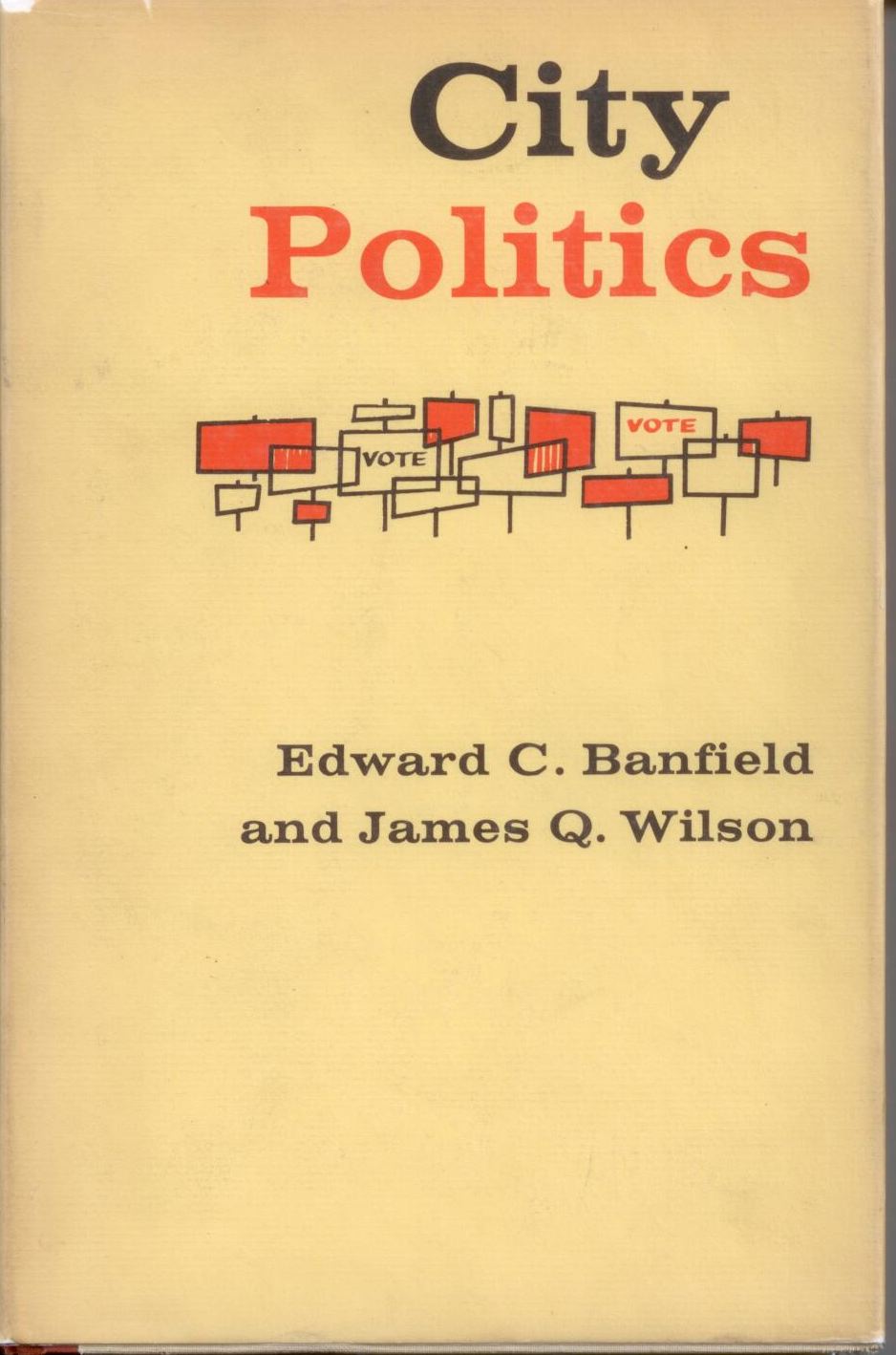Edward C. Banfield and James Q. Wilson, City Politics (Harvard University Press and MIT Press, 1963, 1965; Vintage paperback edition, 1966, 1967).
“On the very first page of City Politics, published in 1963, the reader is told that the day-to-day workings of city government are best understood ‘by looking at the differences of opinion and interest that exist within cities, at the issues that arise out of these differences, and at the ways institutions function to resolve (or fail to resolve) them.’ That may all seem obvious today, but when we wrote, most of the published studies of urban affairs were administrative accounts of how cities were organized. In these scholarly books, one learned more about appointed than elected officials, routine than fundamental issues, and legal arrangements than informal political influence. To us, what, was crucial to understanding politics was to grasp the importance of rival political views, including those between the rich and the poor, whites and blacks, and suburbanites and city dwellers, but also the deeper cultural conflict between those who wanted to do good for the city ‘as a whole’ and those who wanted the city to benefit them as individuals. The former wanted efficiency, impartiality, honesty, nonpartisanship, planning, and strong executives; the latter wanted favors, personal support, and influential legislators who could help neighborhoods. This competition between these opposing cultural groups was, we argued, the most profound force shaping city life and could be used to understand why some cities had embraced a ‘reform’ style of government and others had resisted it.”
James Q. Wilson (2003)
Online:
Scribd. [pdf]

